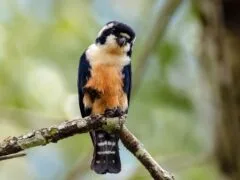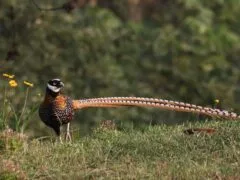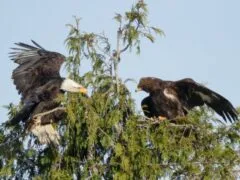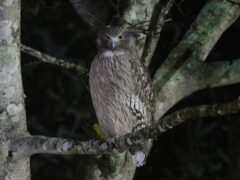Sulu hornbill, silvery pigeon, Magenta petrel, Amsterdam albatross, and the recently reintroduced Spix’s macaw are some of the world’s rarest birds – reduced to critically small numbers, often just tens of individuals. Despite their status, these species can still be found in the wild, if you’re lucky enough to spot them.
8 of the world’s smallest falcons and their unique adaptations
The black-thighed falconet is the world’s smallest falcon, with adult males measuring just 14 centimeters (5.5 inches) in length and weighing as little as 28 grams (1 ounce), while spanning only 27 centimeters (10.6 inches) across the wings. Among true Falco species, the Seychelles kestrel is the smallest, reaching just 15 centimeters (5.9 inches) in […]
4 woodpeckers of the UK, from common drummers to rare visitors
Pileated woodpecker (Dryocopus pileatus): Carpenter of North America’s woodlands
12 black parrots of the world – some fully dark-plumaged
Some of the world’s most distinctive black parrots include the Australian black cockatoos and the vasa parrots of the Coracopsis genus, which are native to Madagascar, the Comoros, and the Seychelles. In addition to these, a few other dark-plumaged parrots can be found in Australasia, particularly in New Guinea and West Papua.
17 birds with the longest tail feathers across the globe
The Reeves’s pheasant holds the record for the longest tail of any living bird, with adult males growing astonishing tail feathers that can reach up to 2.4 meters (7.9 feet) in length. The ribbon-tailed astrapia, on the other hand, boasts the longest tail relative to body size – males of this species grow elegant, white, […]
Eagle meaning and symbolism in myths, legends, and culture
Across cultures and throughout history, eagles have been seen as symbols of strength, freedom, and divine power. They appear as messengers of the gods, emblems of kings and warriors, and guardians of the skies – both revered and feared for their soaring flight and fierce hunting prowess. In some stories, they embody wisdom and protection; […]
8 types of eagles in North America and two rare vagrants
8 of the smallest hummingbird species known to science
The bee hummingbird is the world’s smallest hummingbird, measuring just 5 centimeters (2 inches) in length, weighing as little as 1.6 grams (0.06 ounces), with wingspans as short as 3.25 centimeters (1.28 inches) in particularly small individuals. The gorgeted woodstar is the smallest of the woodstars at just 5.8 centimeters (2.3 inches), while the calliope […]
6 types of tit birds in the UK, and where to find them
Blakiston’s fish owl (Ketupa blakistoni): Riverine giant on the brink
Blakiston’s fish owl (Ketupa blakistoni) is the world’s largest owl and one of the most elusive. Endemic to remote riverine forests of northeast Asia, it is an apex predator uniquely adapted to hunt along streams and ice-free waters. Its massive frame, shaggy plumage, and specialized diet of fish and amphibians set it apart from other […]











